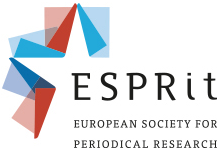Call for Papers: Stereotypes in Motion. On changing letterpress/image relations in illustrated magazines and books (1830-1860) (22-23 May 2019, Bochum)
22-23 May 2019, Ruhr Universität Bochum
- hosted within the DFG-funded research unit “Journal Literature: Rules of Format, Visual Design, and Cultures of Reception” by the sub-project “Text and Image in ‘Konkurrenz’”
- coordinated by PD Dr. Andreas Beck (Universität Bochum), in cooperation with PD Dr. Madleen Podewski (Freie Universität Berlin)
- submission deadline February 15, 2019
In the early and mid 19th century, the increasing adoption of wood engraving and the booming transnational trade in stereotypes (casts from wood engravings) effect a popularization of pictures throughout western culture. Moreover, this mediated migration of xylographic illustrations pushes forward the formation of new modes of combining letterpress and images on pages and on openings. This development becomes obvious on any reading-viewing of illustrated periodicals (of the Penny Magazine and of the Illustrated London News genre, of caricature magazines, and later on of ‹Familienblätter›: family magazines such as Gartenlaube) and books (for example Laurent’s/Vernet’s Histoire de l’Empereur Napoléon or Old Nick’s/Grandville’s Petites misères de la vie humaine). Nevertheless, little research has been done to investigate the changes that stereotyped wood engravings brought to the visuality of print culture. There are some studies in manufacturing processes (paper stereotyping, electrotyping), but little in marketing strategies and their logistic and economic aspects. And almost no attention has been paid to the important role that stereotyped wood engravings play in the ambitious and dynamic visual culture of the 19th century.
We expect our Workshop to continue and/or initiate detailed explorative research in this field. Studies in stereotypes are particularly suitable to grasp the specificity of the print-media aspect of the visual culture of the period. Transnational trade in stereotypes provoked a cascade of changes in the relationship between letterpress and image in Europe and beyond. Both in terms of technical possibilities and in terms of the economics of publishing, it makes possible the emergence of the phenomenon, and of the term, ›illustration‹. In the process, the transnational flow of stereotypes encourages rearrangements of pictorial and verbal elements which are recombined and paratextually framed in convergent or divergent ways in different magazines and/or books in different locations. These recombinations alter the visual qualities of both typeset text and images, and draw attention to the flexibility of their relations, ranging from strictly word-governed pictures to typography with emphatic visuality. Analyzing these layout practices offers the opportunity to observe the emergence of a transnational verbal-visual syntax, as well as to witness the formation of local verbal-visual idioms.
We call for proposals for papers (in English or German) from book and media studies, from art and literary history, concerned with these or related topics. Papers should focus on the migration of stereotypes (principally of wood engravings), and its effects on the relations between letterpress and picture, or word and image, in the print-media culture of this period. Studies in economic aspects and market strategies of stereotype trading are most welcome, for example investigations of trade networks, or of logistic aspects of export/import practices. We will welcome studies which explore the impact of stereotype trading’s economic dimension on the visual design of illustrated magazine pages/openings.
Contributions will be published in the research unit’s e-journal PeriodIcon. Studien zur visuellen Kultur des Journals / Studies in the visual culture of journals.
Please submit your proposal (max. 500 words) and a short CV by February 15, 2109 latest to:
PD Dr. Andreas Beck: This email address is being protected from spambots. You need JavaScript enabled to view it.
PD Dr. Madleen Podewski: This email address is being protected from spambots. You need JavaScript enabled to view it.
